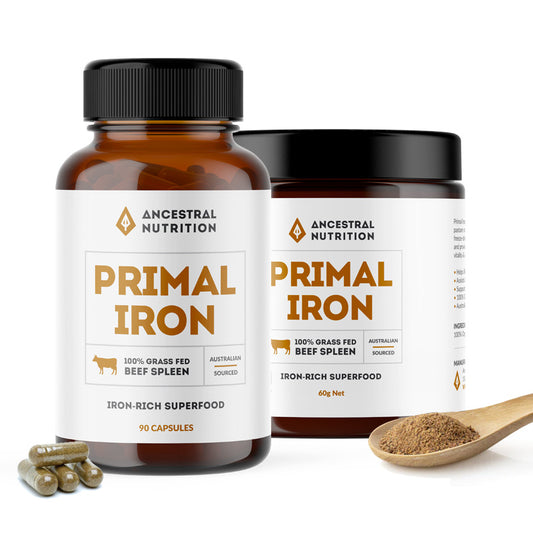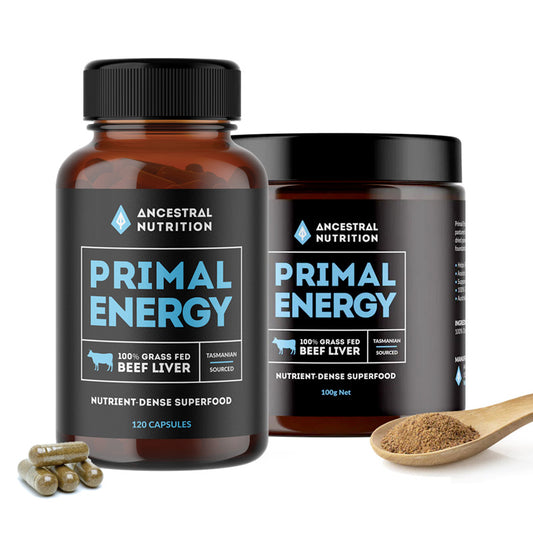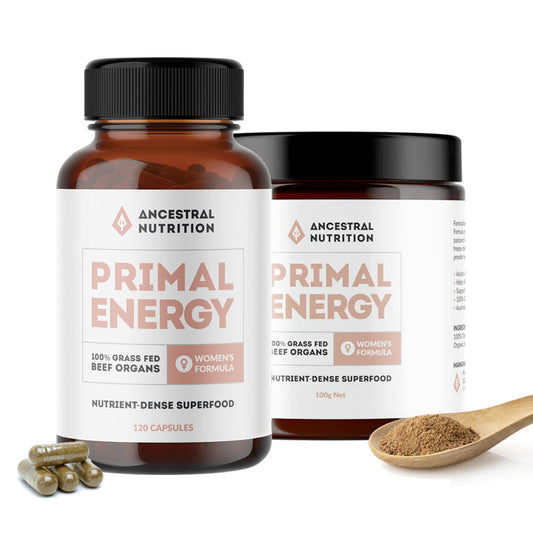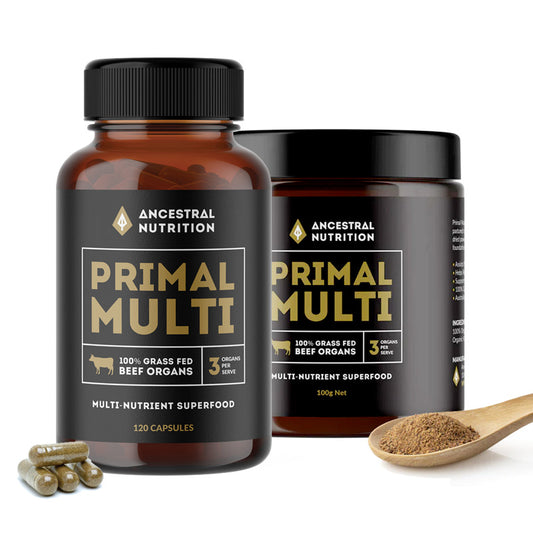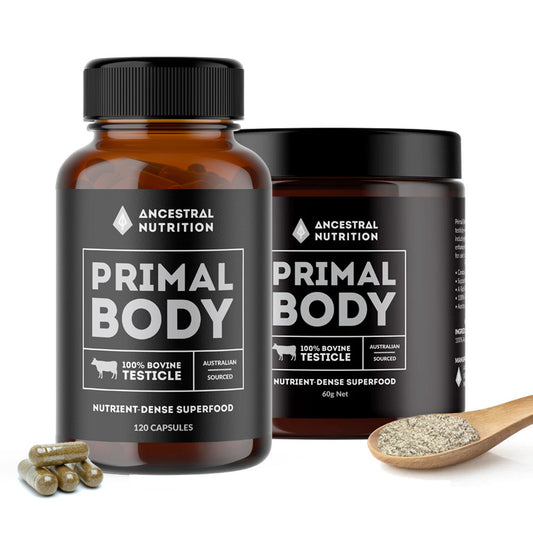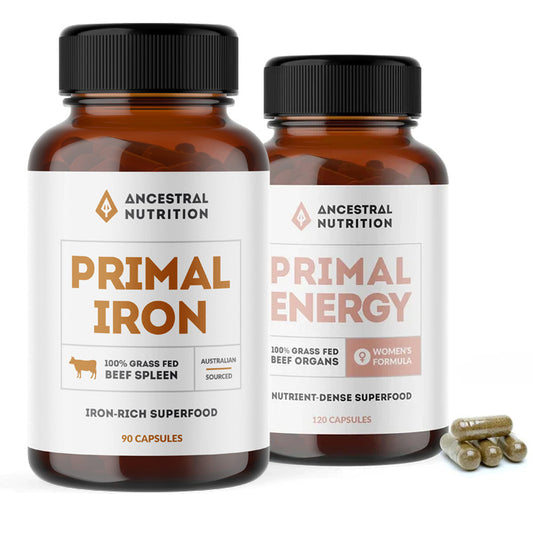Vitamin A Foods: How Beef Liver Supports a Nutrient-Rich Diet
article by Ancestral Nutrition

Maintaining a diet rich in vitamins and minerals is key to supporting general wellbeing. Among the many essential nutrients, vitamin A plays a foundational role in helping the body perform everyday functions—such as maintaining normal vision, supporting skin structure, and assisting immune system function.
While vitamin A can be found in a variety of foods, beef liver stands out as one of the most concentrated natural sources. In this article, we explore what vitamin A is, how it works in the body, and the top five foods that naturally provide it—including why beef liver is often highlighted for its nutritional value.
What Is Vitamin A?
Vitamin A refers to a group of fat-soluble compounds that include retinol (preformed vitamin A) and beta-carotene (a provitamin A found in plants). The body can convert beta-carotene into usable vitamin A, though this process varies between individuals. Retinol—found in animal foods—is already in its active form and is readily absorbed.
General Functions of Vitamin A
Vitamin A contributes to several normal bodily processes, including:
- Supporting normal vision
- Maintaining healthy skin and cell growth
- Assisting immune system function
- Contributing to normal reproductive processes
- Supporting development in children and during pregnancy
Top 5 Vitamin A Foods (from Both Animal & Plant Sources)
-
Beef Liver: A particularly rich source of preformed vitamin A (retinol), beef liver offers this nutrient in a form that is immediately usable by the body. It also contains a range of other naturally occurring nutrients such as B12, iron, copper, and choline.
-
Cod Liver Oil: A well-known traditional source of preformed vitamin A, cod liver oil also provides omega-3 fatty acids.
-
Sweet Potatoes: A colourful plant-based option, sweet potatoes are rich in beta-carotene, which the body can convert into vitamin A.
-
Carrots: Another beta-carotene-rich vegetable, carrots are a convenient everyday source of provitamin A.
-
Spinach: Spinach provides a plant-based form of vitamin A and also contains fibre, folate, and iron.
While both animal and plant foods can contribute to vitamin A intake, only animal-based sources provide retinol in its active form.
Recommended Vitamin A Intake (RAE) – Australia
According to the National Health and Medical Research Council (NHMRC), recommended daily intakes (in retinol activity equivalents or RAE) are:
- Adult males: 900–1000 mcg RAE/day
- Adult females: 700–800 mcg RAE/day
- Pregnant women: 800–1000 mcg RAE/day
-
Breastfeeding women: 1100–1200 mcg RAE/day
Meeting these targets through food can help ensure adequate intake to support the body’s normal processes.
A Nutrient-Rich Option: Beef Liver in Whole Food Form
For those looking to add more naturally occurring vitamin A to their diet, beef liver is one of the most concentrated whole food sources available. It also provides a wide range of complementary nutrients such as iron, B12, zinc, and choline.
Our freeze-dried beef liver capsules are made from 100% grass-fed, grass-finished Tasmanian cattle. They are freeze-dried to help preserve the naturally occurring nutrients and offer a convenient way to include beef organs in your diet—especially if you’re not a fan of the taste or preparation involved in fresh liver.
These capsules contain no added hormones, antibiotics, or GMOs and are produced to meet strict quality standards.
Learn more about our range of beef liver and beef organ supplements here.

